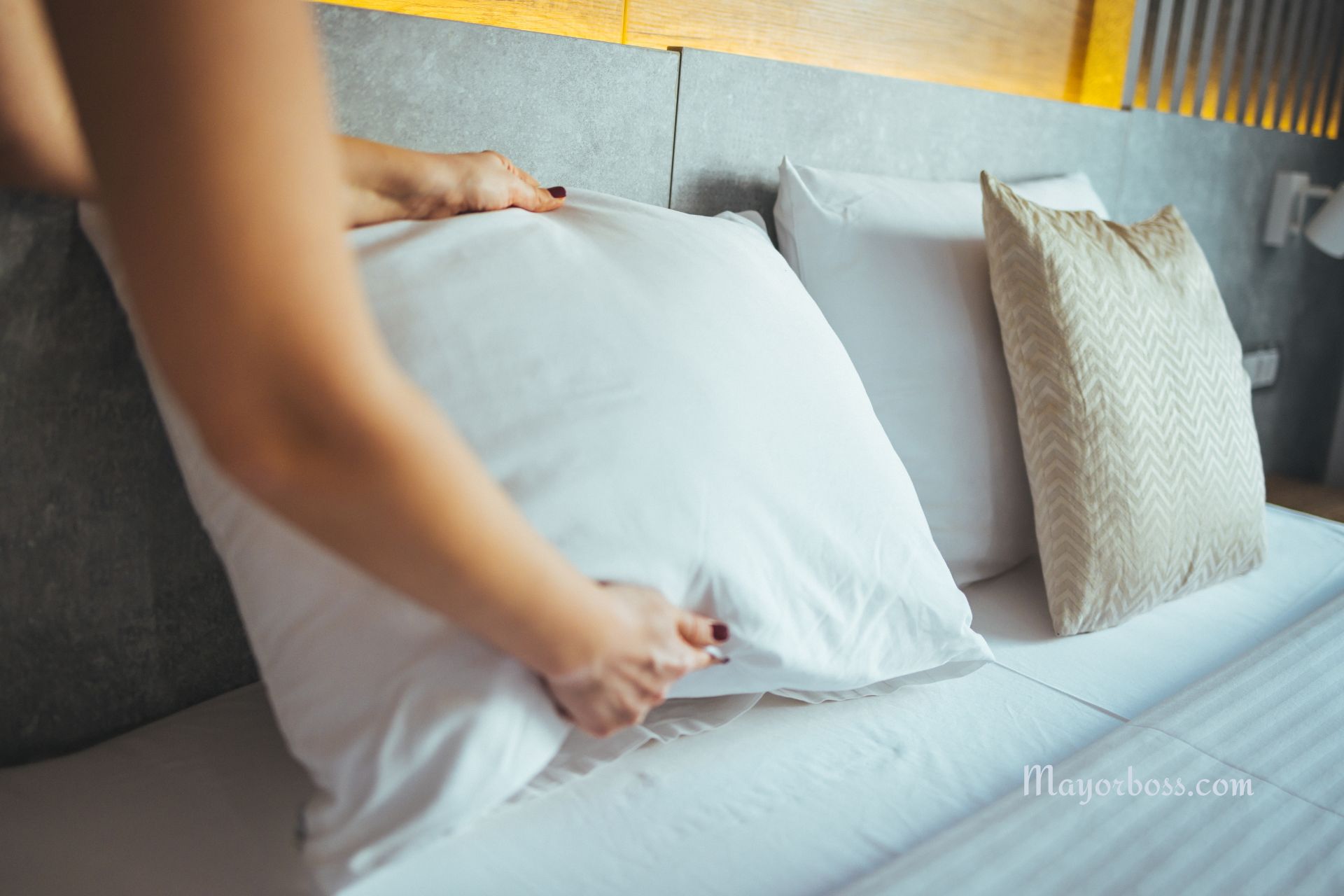How to Get the Sweat Smell Out of Pillows Without Having to Wash Them
Pillows often hold sweat, oils, and other smells from our bodies. Over time, these can build up and make your pillow smell. Although washing is the best way to clean a pillow, there are times when you might want a quick fix. In this article, we will explain some simple methods to reduce sweat smells without having to wash your pillow.

Why do pillows smell? When you sleep, your body releases sweat. Sweat is mostly water, but it also has salts and proteins. These substances can soak into your pillow. Bacteria, which are tiny living things, can grow on the damp parts of the pillow. As the bacteria work on the sweat and oils, they produce an unpleasant smell. This process is natural, but it can be bothersome if you notice a strong odor.
Keeping your pillow dry and fresh is important. Dry pillows do not allow bacteria to grow as easily. That is why methods that remove moisture or kill bacteria can help reduce the smell.
Airing Out Your Pillow
One of the easiest ways to freshen up your pillow is to let it breathe. Air and sunlight can help remove moisture and reduce bacteria. Sunlight contains ultraviolet (UV) rays. These rays can help kill bacteria. The fresh air helps dry out any damp spots. This method is natural and does not require any chemicals.
Steps to Air Out Your Pillow:
- On a dry, sunny day, take your pillow outside.
- Place it in a spot where it can get plenty of sunlight and fresh air.
- Leave it for a few hours. Turn the pillow over so both sides get some sun.
Using Baking Soda
Baking soda is a common household item that helps remove odors. It absorbs the sweat and oils that cause bad smells. This method is simple, cheap, and effective. It works best when you use it after your pillow has been aired out.
How to Use Baking Soda:
- Sprinkle a generous amount of baking soda evenly over your pillow.
- Let the pillow sit for several hours or even overnight.
- After waiting, gently shake or pat the pillow to remove the baking soda.
Applying White Vinegar
White vinegar is a mild acid that can help break down the substances that cause smells. It also has some antibacterial properties. The vinegar helps break down the sweat and oils. As the pillow dries, the vinegar smell goes away, leaving a fresher scent. Always use a diluted solution to protect your pillow.
How to Use White Vinegar:
- Mix one part white vinegar with two parts water in a spray bottle.
- Lightly mist the surface of the pillow. Do not soak the pillow.
- Let the pillow dry in a well-ventilated area or in the sun.
Adding Essential Oils
After using baking soda or vinegar, you may want to leave your pillow with a nice smell. Essential oils can add a light, natural fragrance. Some oils, like lavender or tea tree, also help fight bacteria. This step not only adds a pleasant scent but also provides extra antibacterial benefits. Use just a few drops so that the scent is gentle and not overpowering.
How to Use Essential Oils:
- Add a few drops of your favorite essential oil to a spray bottle filled with water.
- Lightly spritz your pillow. Do not over-wet it.
- Let the pillow air dry.
Use a Vodka Spray
Yes, you read that right—vodka. Vodka is a natural deodorizer and disinfectant. It evaporates quickly and doesn’t leave a residue. Mix one part vodka with three parts water in a spray bottle and lightly mist your pillows. Allow them to air dry completely. The alcohol will help kill the bacteria that cause odors.
When to Wash Your Pillow
Even though these tricks work well, washing your pillow is the most effective way to remove all the sweat and bacteria. Health experts suggest washing pillows every three to six months. If you notice a strong, persistent odor or see stains, it is time to wash your pillow.
Washing helps remove deep-seated bacteria and allergens that can affect your health. A clean pillow is important for a good night’s sleep and overall well-being.
